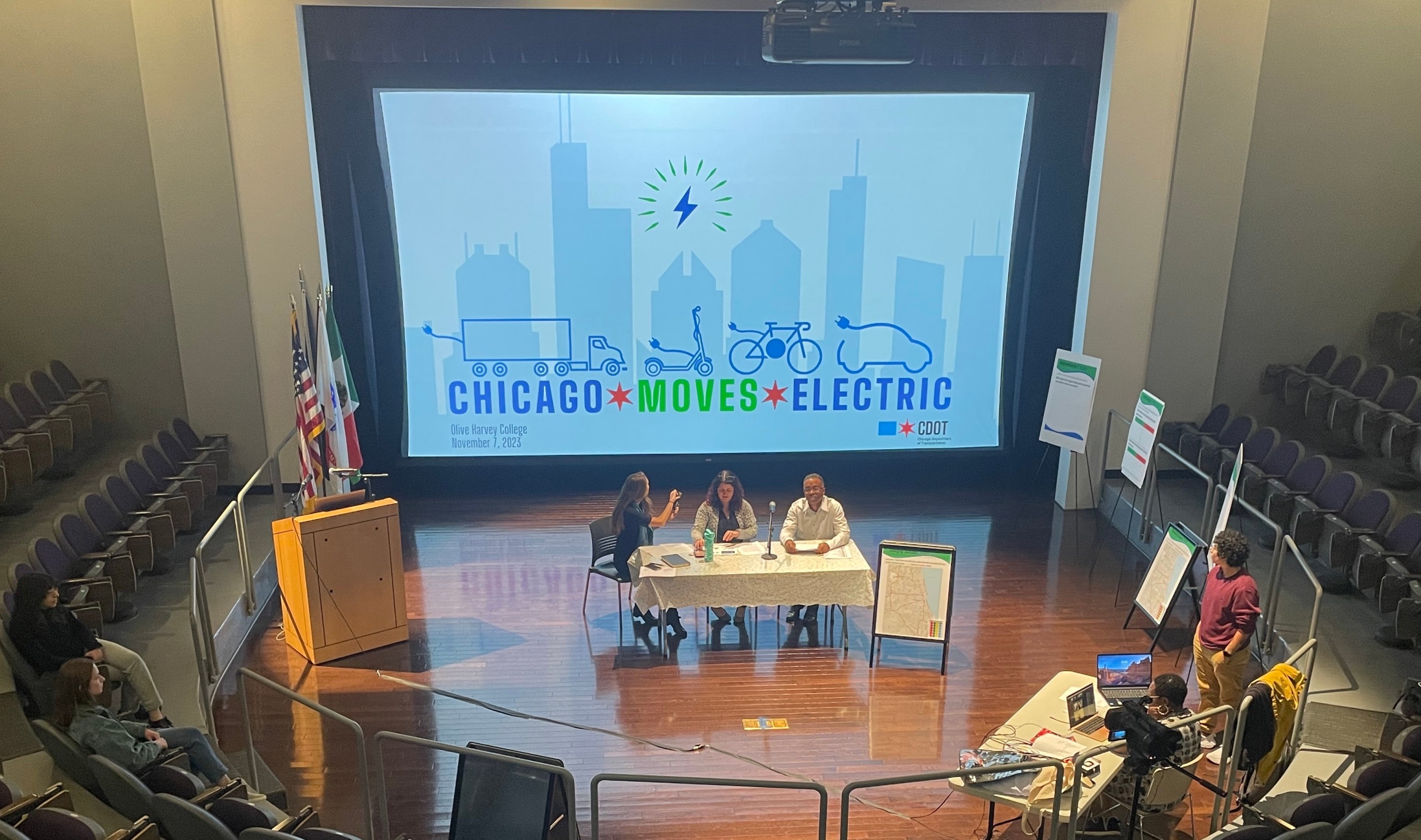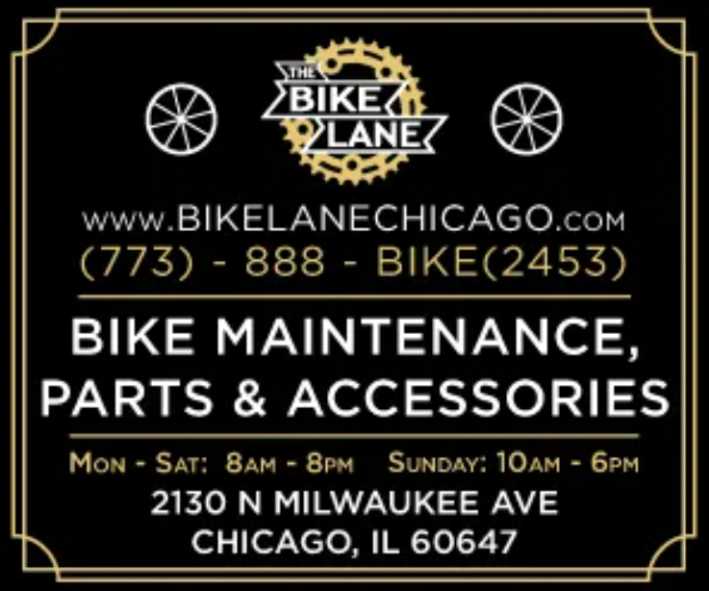
Last week the Chicago Department of Transportation held its first of several public outreach meetings to devise a future plan for electric vehicles (including e-bikes, e-scooters, and more), services and charging infrastructure. The goal is for any future initiatives to support the goals of Chicago’s Climate Action Plan to reduce transportation carbon emissions and advance environmental justice.
"EVs are one of many sustainable mobility options that help us meet our citywide goals to reduce greenhouse gas emissions and improve air quality and health for our residents," said Mayor Brandon Johnson in a statement. "Chicago is taking a community-driven approach to ensure our investments in EV infrastructure meet the needs of residents and ensure every neighborhood has access to the environmental and cost-saving benefits of electric vehicles."
“Along with our continued work to advance active transportation options like walking, biking, and taking transit, improving access to EVs and charging infrastructure is an important part of creating a greener and healthier transportation system,” stated CDOT’s Acting Commissioner Tom Carney. “We look forward to hearing from residents to help us develop a comprehensive EV and mobility framework plan that meets their needs.”
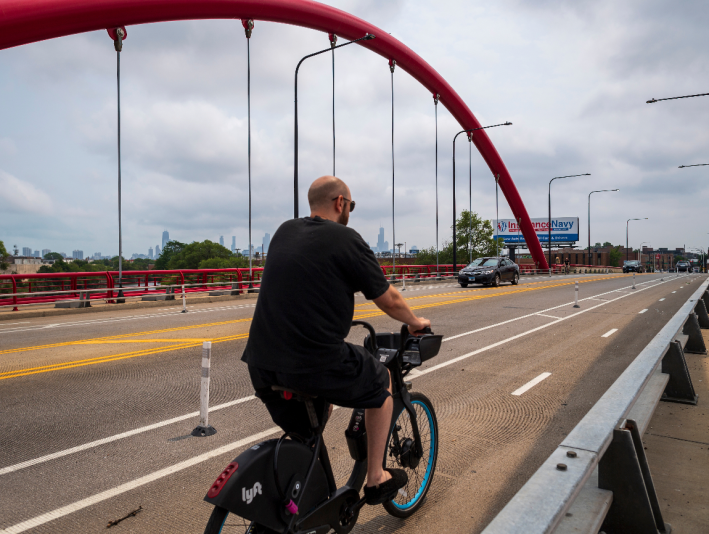
The first of three community meetings was held last week at Olive-Harvey College, 10001 S. Woodlawn Ave. in the Pullman communty. A panel that included CDOT's clean transportation program director Samantha Bingham, HNTB Corporation's senior mobility manager Jane Wilberding, and David Rudd of the PR firm Rudd Resources led the discussion in a lecture hall. For those who were unable to attend in person, there was an option to attend virtually as well.
"[What] we're kicking off here tonight is an important step, and that's the public engagement," said Bingham. "This is an initial round of public input. We really want this framework, the guide, the recommendations within the framework to have been developed with the input of all Chicago communities,” She went through CDOT's EV and Mobility Infrastructure Strategy, in addition to providing background on electric vehicles and e-mobilty.
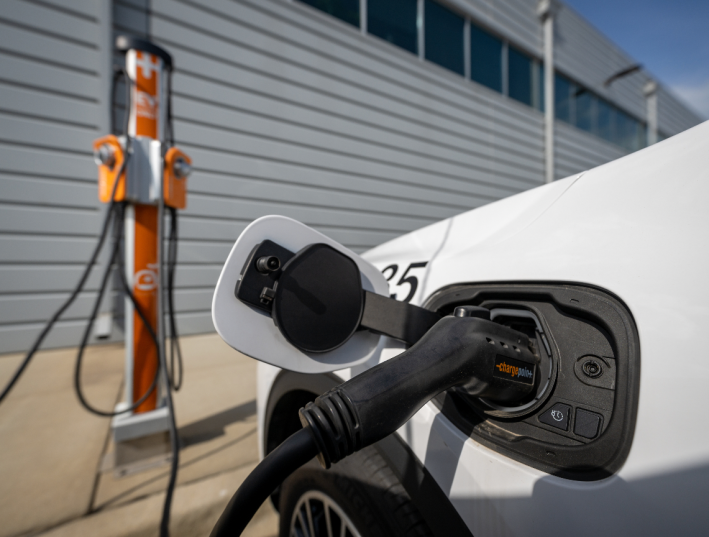
Next Wilberding talked more broadly about the benefits of electric vehicles and how they’re impacting communities. For example, she said, in Illinois there are 11 EV facilities with $5 million in investment along with over 10,000 jobs already announced, and with percent of the facilities being in disadvantaged neighborhoods.
“[We] will be developing a public right of way, or what we call curbside charging pilot for the city," Bingham said. "We want to better understand how that can be both sustainable and safe, and replicable across the city. Then also, you're looking at ways that the city can be more transparent and efficient, and our regulatory processes that will more broadly help to reduce costs for charging infrastructure developments across the city."
For the final part of the meeting, Rudd directed those in attendance to get out of their seats and come down for the interactive part of the meeting. There was a series of boards with different instructions on them. One was a map of the city where you were supposed to put different colored stickers for where you thought EV public charging stations, e-bike stations, and scooter stations should go.
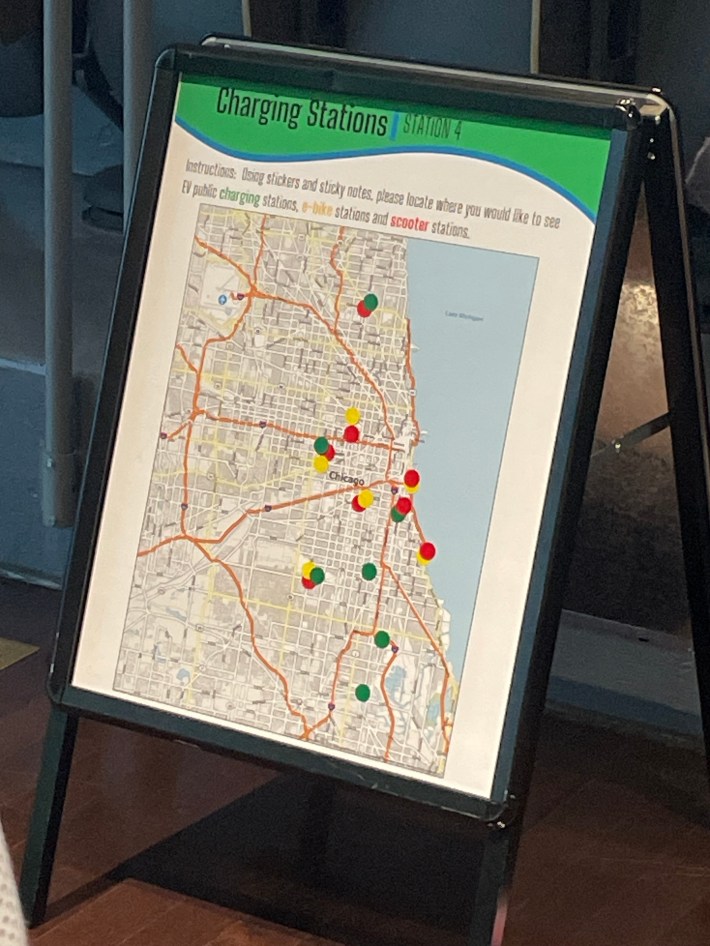
Two other boards were for writing down what people thought were the most significant barriers to electric vehicles and devices, and what resources and opportunities would increase the use of these items. Another board was for selecting what people thought was a truth or myth about electric vehicles.
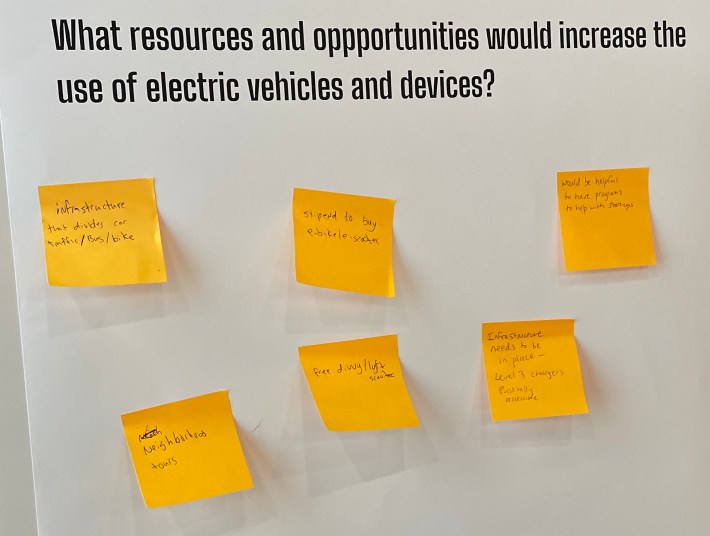
After the interactive session, Rudd talked about what would come next. CDOT hopes the EV and E-Mobility Infrastructure Plan will help guide them and other city agencies to assess and find ways to make the new technology more accessible; simplify the regulatory and design process for charging infrastructure; and try out curbside charging.
Besides the public meetings, CDOT is also launching a survey to gauge Chicago residents' knowledge of EVs and e-mobility devices such as electric bikes and scooters. The survey also asks about the participants' mobility needs, and the way those things would influence charging demand in the next ten years.
- Thursday, November 16, all-virtual online meeting (register here), 6-7:30 p.m.
- Thursday, November 30, Malcolm X College, 1900 W Jackson Blvd., 6-7:30 p.m.
Check out CDOT's Electric Vehicle and Mobility Infrastructure Framework website here.

Did you appreciate this post? Please consider making a tax-deductible donation.
